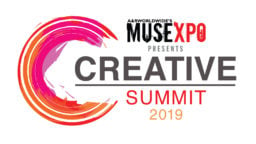Not long ago, Nick Raphael was on top of the world – and in the wilderness.
He was on Everest, and trekking through the Mahālangūr Himāl region of Nepal (on a charity expedition for Nordoff Robbins). At the same time, he was celebrating Unholy by Sam Smith being the No. 1 record in the world, but away (far away) from his former colleagues at Capitol Records, having parted company with the label in late 2021.
Now he’s back. From Mahālangūr Himāl. And in the business he loves, front and centre of a new company, North West Songs Music Group (operating across records and publishing).
Raphael has founded NWS in partnership with old friend and sparring partner, Christian Tattersfield (CEO of Warner Music UK from 2009 to 2014). The pair first worked together at the storied London Records in the late nineties and then set-up the NorthWestSide label within the BMG group in 1996 (it was folded into Arista in 2000).
A spell at Epic Records UK – where Raphael enjoyed huge success with artists such as JLS, Olly Murs and Paloma Faith – made him, alongside long-term work partner Jo Charrington, an A&R star.
Charrington and Raphael were poached by Universal in 2011, initially to run a resurrected London Records (Charrington had also earned her stripes there), then to launch the UK division of Capitol Records (Charrington was initially EVP A&R, becoming Co-President in 2017).
At the end of 2021, however, it was announced that Raphael would be leaving Capitol and Universal (destination unknown), while Charrington would move over to run EMI (now with added Capitol Records roster) alongside Rebecca Allen.
In his first interview since then, Raphael tells the story of that split, whilst also reflecting on an eight-year run of success at Capitol during which Sam Smith and 5 Seconds of Summer both became global superstars.
He also gives a brief outline of NSW’s formation and ambitions – but holds the detail back for this year (“we’d rather talk about what we’re doing than what we’re going to do”).
In terms of holding back, however, that’s pretty much your lot…
When and how did you first realise, or find out, that your time at Universal Music Group and Capitol Records UK was coming to an end?
So, I’d been at Universal since 2011. I’ve run a frontline record company, in one form or another, since 1996, when I started NorthWestSide records with Christian [Tattersfield] at BMG.
By the time my contract was coming up for renewal, I felt that I had achieved everything I could possibly achieve in terms of being a UK executive, and in terms of being a UK A&R person. I wanted a bigger challenge, and I would have loved that challenge to have been the opportunity to run a US label. If that wasn’t to be the case, then I was going to have to start my own label. After 25 years of doing the same thing, I wanted something new.
The easiest fix, and the dream for me, would have been to become head of Capital Records in the US. But the decision was made by the powers that be that I wasn’t the right person to do that. And I want to clearly state that I respect that decision and understand that decision. But that was
my ambition; I wanted to have that shot.
“Maybe my idea of where I was and where I should be going was different to the company’s idea.”
Maybe my idea of where I was and where I should be going was different to the company’s idea. Maybe I hadn’t made it clear enough that this was an opportunity I wanted. Either way, I wasn’t considered or called and that was that.
I’ve been very fortunate that within the Universal system, and with the incredible Universal team; I experienced the pinnacle of success in America during the time that we ran Capitol Records UK, with Sam Smith, 5 Seconds of Summer, Liam Payne, etc. We had five No. 1 radio records, many multi-Platinum records. In the last eight years, at Capitol UK, we had 47 songs RIAA-certified Gold, Platinum or Diamond in America.
To be clear, that’s not down to any individual. That happened because I was lucky enough to work with the best people in the music industry. Universal were the best partner and the best employer; they are the gold standard.
Maybe we hit the most incredible form in terms of A&R, but we couldn’t have put those artists and those records into a better system with better people.
When did you first become aware that the job of running Capitol in the US was going to become available?
Steve Barnett [then President of Capitol US] had given me the heads up that he was going to announce his retirement, which was a big deal to me as he had been a friend, a mentor and a huge supporter.
We’ve known each other since 2001 when we worked together at Epic. Steve was one of the best execs at breaking international repertoire in the US – Adele, One Direction, Lewis Capaldi…
Plus he had led the charge on 5 Seconds of Summer for us, and they became the only band in the history of the Billboard chart to have their first three albums debut at No. 1 – and Youngblood [their third], remember, had to battle with ‘The Carters’, Jay Z and Beyoncé! Steve was also instrumental in Sam’s success, of course.
Did you ever have a conversation with anyone at Universal about why you weren’t considered?
No, the first thing I heard was the announcement of Steve’s replacement [Jeff Vaughn].
Once you didn’t get offered the Capitol US job, was it inevitable that you would leave?
In the world of a music executive, with 18 months left on your contract, you’re normally in discussions about the next contract. But we weren’t. There was also COVID, we were in the middle of Universal’s IPO, so there were many distractions.
If I put my hand on my heart, I think the decision was made when we did the last five-year deal, which would have been 2017, that this would probably be my last run [as a Universal employee] in the UK.
Ask any of your readers, if you’ve done the same job, or the same type of job, for 25 years, you want a change – you need a change. I think I had become the longest-serving UK label President this millennium – and stretching back into the previous millennium.
There comes a point where, even if it was the best job in the world, and I loved it, you’re doing the same bloody thing.
On top of that, I brought Jo in in 2001 to come to work for me, and she’d grown into a leader in her own right. In 2017 I invited her to become a Co-President, and then is there a moment when she’s up next. I’m not saying I was acting for altruistic reasons, to give her the opportunity [to be a sole label President] or whatever; she could have got the opportunity anywhere she wanted. She’s been offered lots of wonderful jobs over the years, because she’s fucking brilliant.
I guess what I’m saying is, for more than one reason, it was time. I was in danger of becoming jaded. I didn’t want to be the bloke pointing out to all the young bucks that whatever they do, you did it years before. That’s not me, I’m an energy guy, I’m the team leader, front and centre; jaded wouldn’t work for me.
And by the way, can I also say, I was in the middle of having one of the best moments of my career with a company that treated me and my team brilliantly, they couldn’t have done any more for us.
It was about me, and my need for a challenge. That challenge wasn’t available at Capitol, and my reaction was, I get it, no problem, next.
Before we move on to ‘next’, looking back, what were your proudest achievements during your time at Universal?
When any of us work for whichever record company, our job is to find artists and help them fulfil their dreams. So any time we did that, I don’t know if proud is the right word, but that’s when we were doing our job as it should be done.
I’ve always looked up to the A&R-driven labels within the record business, whether that be Def Jam, Motown, Syco, Virgin under Ray [Cooper] and Ashley [Newton], London Records with Tracy [Bennett] and Roger [Ames] that I joined in the early nineties, S2 with Muff [Winwood] and Lincoln [Elias], XL, Beggars – companies who eat what they kill and don’t rely on catalogue or international repertoire. I’ve always believed that is the essence, the heartbeat and the most important part of what we do, and that’s the thing that I gravitate towards.
I understand there’s another side to a record company, servicing global artists in local markets etc. I respect that side of the business and there are brilliant people who operate there. Can I operate there? Yes. But am I the best person to have on that side? No, because my passion is for new artists and for making new music.
Ultimately the thing I’m most proud of is the method by which we set about building Capitol, like we did with Epic previously: to have a small concentrated team and to have an A&R policy of signing two things a year, where I believe most record companies sign 25 to 40 things a year.
Then, through that process of focus, to not just break a disproportionate percentage of the artists, but to break them to a bigger level. That was and is my ethos. That was the dream that Jo and the whole team bought into.
And when Jo and I talked to David [Joseph] about doing a label at Universal in 2011, he supported and bought into that ethos. Universal were brilliant, globally and in the UK, so supportive of us running this alternate system, because it was not how every other record label runs.
And by the way, for the first three years, it looked like an experiment that was going wrong. Then, in 2014, 5 Seconds and Sam both launched within a short period of each other. 5 Seconds’ [eponymous] first album goes to No. 1 in America and is huge around the world, Sam’s first album [In The Lonely Hour] goes to No. 2 in America and No. 1 in the UK. It went on to become the 9th biggest debut album of all time in the UK, in fact.
Worldwide, sales have just gone past 20 million. That was the beginning of the validation of our methodology. And the beginning of an eight-year period in which we sold 55 million albums.
On the flip side, were there any frustrations during that time? Any goals that you didn’t achieve?
I want to repeat this: Universal could not have been any better, as my employer, my partner, everything; they were brilliant. They let this lunatic tell them that I had an alternative way of doing the core function of a record company, one that completely flew in the face of every other unit operating within their company.
“I want to repeat this: Universal could not have been any better, as my employer, my partner, everything.”
They were beyond supportive. They basically said, Do it your way, and we’ll add our value by plugging you into our brilliant domestic distribution and support system and our incredible international set-up. And whilst doing that, they weathered a three-year start-up period where we couldn’t get anything away, which was very frustrating. All respect to them.
I remember going with David [Joseph] to see Lucian [Grainge], in 2013, as part of the budget process, and Lucian told me, don’t worry about last year, only worry about this year, be aggressive, go for it, believe in your artists, that’s it, end of meeting, go get yourself a coffee. In football terms, it was one of the great half-time pep talks. You’re 2-0 down and the boss says, don’t worry about defending, let’s go all-out attack. If we lose 4-0, so be it…
But let’s at least try and win 3-2?
I think we won 10-2 actually, because we smashed it out of the park. And I’m forever indebted to Lucian and David for saying those things and having that attitude.
When it did come time to leave, and ending the partnership with Jo, how did that feel?
Leaving anywhere after 11 years, having lots of friends within that corporation, and having my big sister and best friend, who by then was also my business partner… it was hard.
Jo and I have worked together since 2001, when I hired her to come and work with me at Sony, and she will be a friend of mine for life, of course. But, and I keep coming back to it, I needed a new challenge, and that challenge wasn’t available where I was.
These things are part of the business. Y’know, I still have wonderfully warm feelings towards Rob [Stringer], because he gave me my break and hired me to replace him at Epic Records in 2001 when I was clearly not ready for that job [laughs]. He took a risk on this gobby kid, because he saw something in me. He basically said, Okay big mouth, let’s see if you can pull it off.
So when I left Sony in 2011, I was leaving the guy who gave me my break. It felt terrible, it was really tough. But then Rob was the first person, on the night that Sam won four Grammys, to send me a text that was so congratulatory… And it included a nice little joke, he said, ‘You know what, you might actually be as good as you thought you were.’
When you started thinking about the reality of leaving, how quickly did you work out what you wanted to do?
The truth is I didn’t know what I was going to do, because I’d made no plans. What I did know was there was no way I was going to quit music, because it’s my passion and my life.
Some conventional things got offered to me pretty quickly, some JVs, and they were very nice, but if I wasn’t going to do a conventional thing in the UK for Universal, who’d been so brilliant to me, I wasn’t going to go and do it somewhere else.
And then I had a walk on Hampstead Heath with one of my oldest and closest friends in music…
And that friend is?
Christian.
Before we get to that, let’s talk about one of the last things you pulled together at Capitol, Unholy, how did that come about?
Jo and I made a Sam Smith record with Jack [Street] and Sam [Evitt] at Method, and of course Sam [the artist] leading everything. We made that in 2021 and it was mixed, mastered and finished at the beginning of 2022. The record has got some wonderful, wonderful songs on it, and one of them was Unholy.
Sam was very, very keen for Unholy to be a single. And when you’re an artist on your fourth album who has had as many big songs as Sam has had, they have a right not only to a seat at the table, but to have the loudest voice.
Love Me More came out first, and it wasn’t as big as hoped. So then all parties agreed to get 100 per cent behind Sam’s choice.
Unholy was the ninth biggest launch on Spotify of all time in terms of day-one streams, and now, eight weeks since it came out, it’s just returned to the No. 1 spot on the Spotify Global chart.
So… what are you doing now?
I was contractually meant to leave Universal in July [2021], but we agreed that I would leave in December. And my wife asked me if I would take six months off, have some holidays, go away with the kids… I think I’d worked solidly since I was 19. And I was 50. So I took a breath.
But at the same time, I was discussing offers with people who had approached me, looking at independent funding, major funding, all this sort of stuff. I was getting excited about a couple of things, and then, like I say, I went for a walk with Christian, my partner in NorthWestSide Records in 1996, and he said, ‘How about getting the band back together?’ At first, I was like, ‘Yeah… but I’m doing my own thing, I’ve got this offer and that offer.’
But he pointed out that I’d always worked better as part of a team. And by the way, ever since we worked together, we’ve spoken on the phone two or three times a week. Always.
Christian put it very simply: he said we’ll have a laugh and we’ll be fabulously successful, because together we’ll be much better than we’d be individually.
“I went for a walk with Christian and he said, ‘How about getting the band back together?’”
I went back home and got on the phone to my lawyer, John Kennedy, and told him I was thinking of going into business with Christian, invest our own money, build a roster, build a publishing company, build a sync company and a record company. He said, ‘But we’ve got loads of people offering to give you money and pay you a salary to do that.’
Which was true, but I just thought, maybe, with the world as it is, maybe this is the greatest opportunity in my lifetime. An opportunity to be an independent operator, because the democratisation of music through streaming gives everyone a chance. British Black music and Latin music in the US has already proved that you can do it in the [major label] system, partnering with the system or completely outside the system. There is no ‘right’ way of doing it now. Oh, and by the way, Christian is one of the most convincing human beings you’ll ever meet! On top of that, the thought of going for lunch every day, dissecting the music business and the world, hatching plans and creating schemes to break artists… I can’t think of anything more enjoyable than that or anyone better to do it with.
The other brilliant person we’ve got involved, and who was already in business with Christian, is Ben Bodie, who used to run Ministry of Sound publishing. I’ve always been a huge fan, always adored him, and he now runs our publishing division, North West Songs. Everything’s NWS: North West Sound Recordings, North West Songs and North West Sync, all under the umbrella of NWS Music Group.
What are the qualities that Christian brings to your partnership and that you especially admire about him?
Christian, as I’ve said a million times, is one of the brightest people I’ve ever met in the music business. He has a brilliant business mind, he’s an exceptional marketer and he’s got bloody good A&R chops. He’s signed some amazing artists, he signed The 1975 to his own publishing company, he’s got a Diamond UK album (three million records) with White Ladder by David Gray, we signed Jay Z together, he had loads of massive dance hits back in the day… He’s always been one of my go-to people.
When did you start to pull this altogether?
March 28 was my first day at work, and yeah, we’re in business, we’ve made some signings, our writers have had hits; we’re up and running.
When can we expect music out on the NWS label?
In the new year.
And you’ve already made signings at the new company on both records and publishing?
Correct. But, honestly, we will tell you much, much more [in 2023], when we’ve achieved more – we’d rather do that than talk about what we’re going to do.
Fair enough. How is the British music industry performing generally right now from your perspective? How is UK-based A&R faring out there?
When Unholy topped the Billboard 100 I looked back at the history of how many UK-signed and A&R-ed artists had reached that pinnacle. What I discovered was that in the 1980s 32 British-signed and A&R-ed artists had a number one single in America. And in this millennium, which is 22 years old, there have so far only been seven.
So, to some extent, we’ve fallen off a cliff. And I’m going to put that down to a lack of ambition in UK A&R. With a few exceptions, they’re just not making records to have global hits. Where has UK A&R gone? Where have our record-makers gone? Everyone’s running around trying to sign a British rap record or a girl singing an acoustic ballad on TikTok because it’s this week’s thing.
Artists that Jo and I signed, at Epic and at Universal, are on album number five, six, seven… Jay Z, who Christian and I signed, is on album 14. We’re always trying to make records and get involved in artists that are meaningful and long-standing. Listen, Coldplay, brilliant, right, amazing artists. Adele, Ed and Sam, all brilliant, but they are the outliers. I think Colin Batsa describes those artists as aliens, because their level of success is just not human.
But, generally, as a UK music business, we’re not having the cut-through and the cultural impact.
And you think that’s to do with ambition and attitude?
Yeah, there’s that brilliant Oscar Wilde quote, ‘We’re all in the gutter, but some of us are looking at the stars’, and I think that’s right. With every artist, with every record, I’m trying to have the biggest hit in the world.
When [Capitol Records UK via Raphael and Charrington] did the Mae Muller record with Neikid [Better Days], and we were looking at features, we got Polo G to do it, and at the time he was the number one artist on Spotify globally.
I’m sure other A&R people would have reached out to their easiest contact and got a local UK rapper to do it – and have a UK hit. My advice to the team was, even if we get turned down by the number one Spotify artist on the planet, let’s just fucking go for it.
If I’m in Round 11 of a boxing match and I’ve lost the last 10 rounds, I’m not going to just cover up, I’m going to try and land a haymaker, because that can turn everything around.
MBUK is available via an annual subscription through here.
All physical subscribers will receive a complimentary digital edition with each issue.Music Business Worldwide






